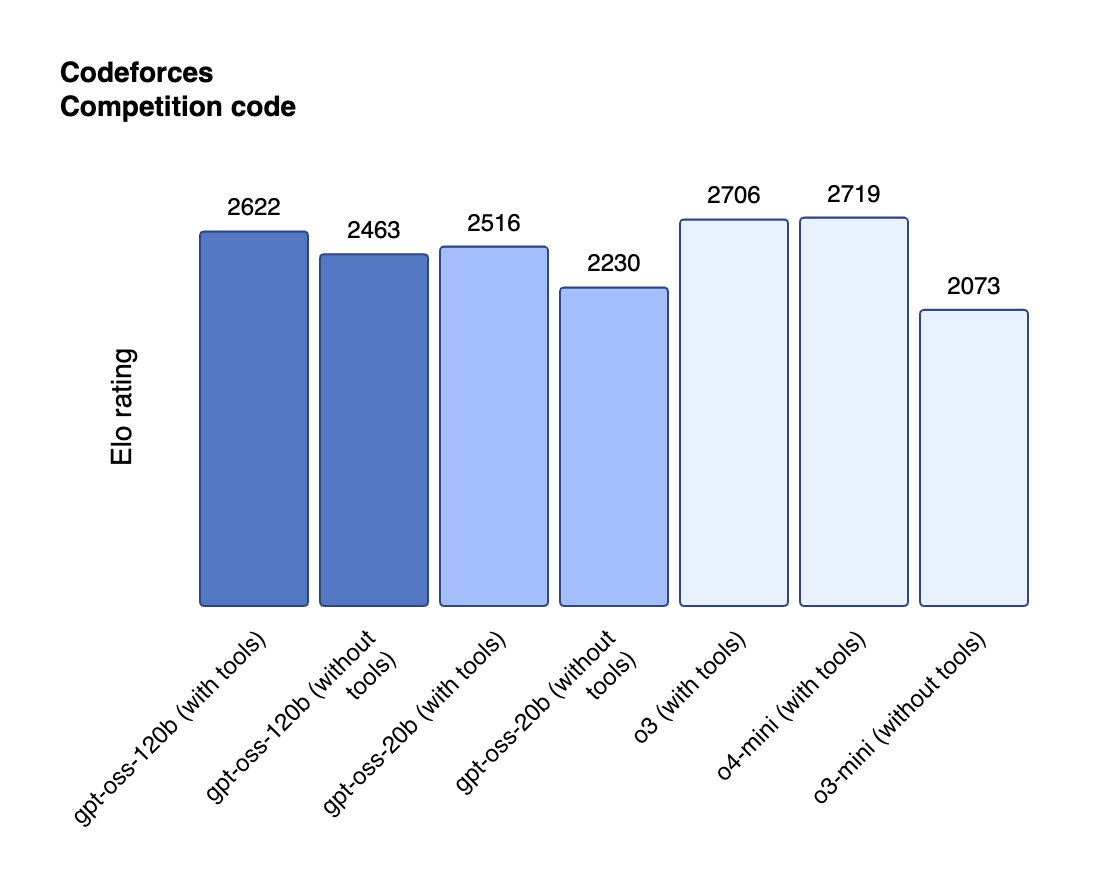 OpenAI has made a surprising return to its roots with the release of GPT-OSS, its first fully open-source large language model since GPT-2. Announced on August 5, 2025, the release includes two models: gpt-oss-120b and gpt-oss-20b, both available under the permissive Apache 2.0 license.
OpenAI has made a surprising return to its roots with the release of GPT-OSS, its first fully open-source large language model since GPT-2. Announced on August 5, 2025, the release includes two models: gpt-oss-120b and gpt-oss-20b, both available under the permissive Apache 2.0 license.
What Makes GPT-OSS Special?
The release marks a significant shift in OpenAI’s strategy. After years of keeping models like GPT-3 and GPT-4 behind closed APIs, they’re now offering state-of-the-art models that you can run entirely on your own hardware.
Key highlights include:
- Fully Open Weights: Download and run the models without depending on OpenAI’s cloud
- Top-Tier Performance: Outperforms similarly-sized open models on reasoning tasks
- Strong Tool Use Capabilities: Built-in abilities to use external tools effectively
- Modern Architecture: The 120B model uses a Mixture-of-Experts design for efficiency
- Flexible Deployment: Run it locally or on private infrastructure with no rate limits
Technical Innovations
OpenAI didn’t just open-source existing technology. They’ve created something new by leveraging:
- Reinforcement learning techniques refined through their commercial models
- Insights from their advanced internal “o-series” models (including o3)
- Optimization for consumer hardware deployment without sacrificing capabilities
The focus on efficiency means you can actually use these powerful models without needing massive computational resources or cloud dependencies.
Why This Matters
For developers, researchers, and organizations, GPT-OSS represents true AI independence:
- Complete control over your data and privacy
- No more usage fees or API rate limits
- Freedom to customize and fine-tune for specific use cases
- Transparent access to model weights and architecture
This democratizes access to advanced AI in a way we haven’t seen from OpenAI in years, enabling both research applications and practical autonomous AI systems that can reason and act independently.
Practical Applications
With GPT-OSS, you can:
- Self-host chatbots and assistants
- Build custom AI tools with your own data, entirely privately
- Deploy on platforms like Northflank with one-click templates
- Experiment with model modifications without restrictions
This release might signal a new chapter in AI accessibility, where powerful models become available to everyone, not just those willing to pay for API access.